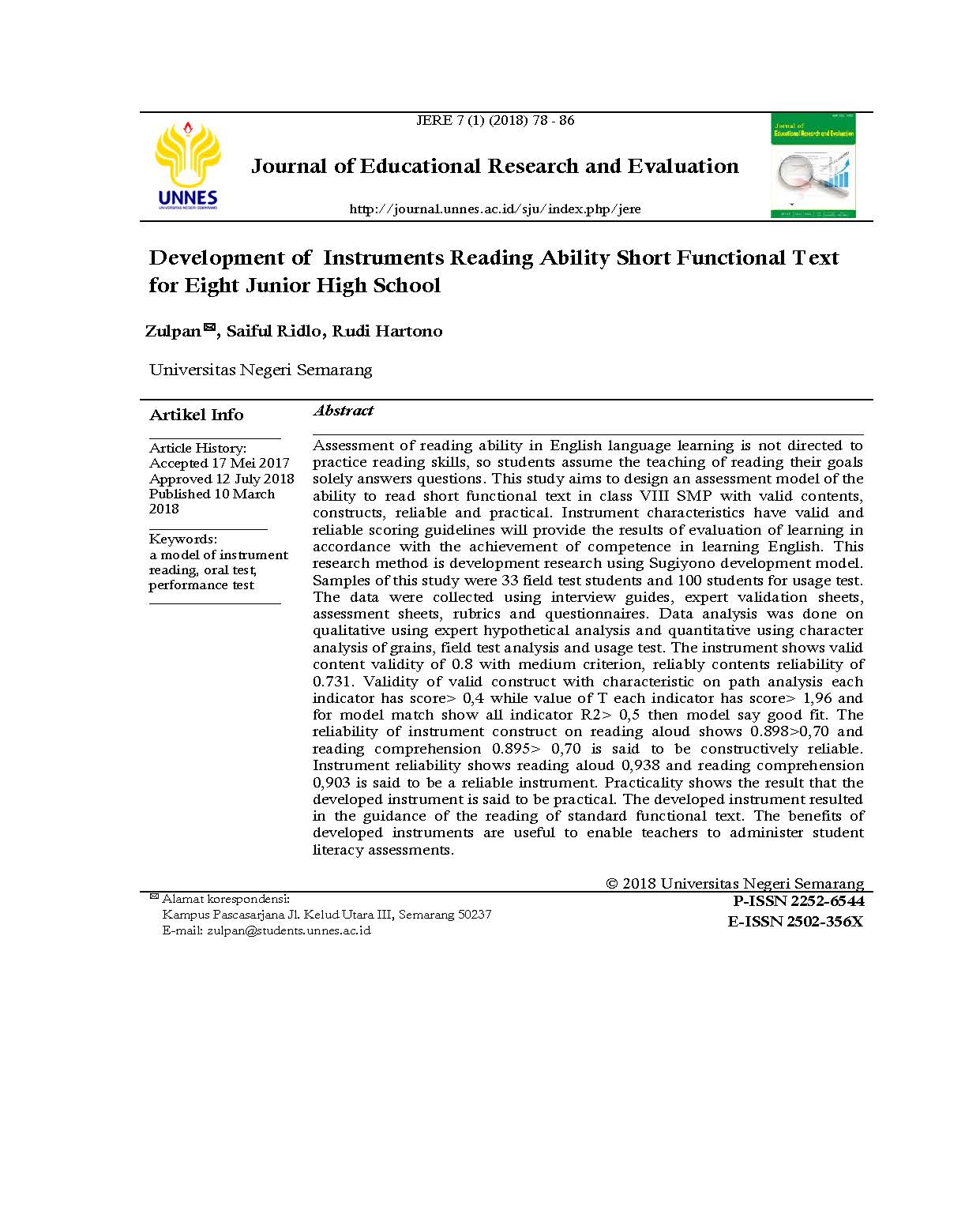Development of Instruments Reading Ability Short Functional Text for Eight Junior High School
##plugins.themes.academic_pro.article.main##
Abstract
Assessment of reading ability in English language learning is not directed to practice reading skills, so students assume the teaching of reading their goals solely answers questions. This study aims to design an assessment model of the ability to read short functional text in class VIII SMP with valid contents, constructs, reliable and practical. Instrument characteristics have valid and reliable scoring guidelines will provide the results of evaluation of learning in accordance with the achievement of competence in learning English. This research method is development research using Sugiyono development model. Samples of this study were 33 field test students and 100 students for usage test. The data were collected using interview guides, expert validation sheets, assessment sheets, rubrics and questionnaires. Data analysis was done on qualitative using expert hypothetical analysis and quantitative using character analysis of grains, field test analysis and usage test. The instrument shows valid content validity of 0.8 with medium criterion, reliably contents reliability of 0.731. Validity of valid construct with characteristic on path analysis each indicator has score> 0,4 ​​while value of T each indicator has score> 1,96 and for model match show all indicator R2> 0,5 then model say good fit. The reliability of instrument construct on reading aloud shows 0.898>0,70 and reading comprehension 0.895> 0,70 is said to be constructively reliable. Instrument reliability shows reading aloud 0,938 and reading comprehension 0,903 is said to be a reliable instrument. Practicality shows the result that the developed instrument is said to be practical. The developed instrument resulted in the guidance of the reading of standard functional text. The benefits of developed instruments are useful to enable teachers to administer student literacy assessments.
